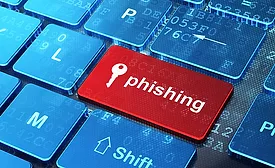Home » coronavirus
Articles Tagged with ''coronavirus''
Enterprise Security Must Prepare to Respond
An Effective Emergency Response Program is the Heart of Exceptional Service.
March 18, 2020
Sign-up to receive top management & result-driven techniques in the industry.
Join over 20,000+ industry leaders who receive our premium content.
SIGN UP TODAY!Copyright ©2026. All Rights Reserved BNP Media.
Design, CMS, Hosting & Web Development :: ePublishing














